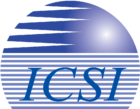In today’s fast-paced digital landscape, Tampa businesses rely heavily on IT services to stay competitive, secure, and efficient. Whether you\’re a startup or an established enterprise, having a clear and comprehensive IT service agreement is essential to protect your operations and ensure reliable support.
Here’s a guide to the key elements every Tampa business should include in their IT service agreement:
1. Scope of Services
Clearly define what services are covered. This may include:
- Network setup and maintenance
- Cloud services
- Cybersecurity monitoring
- Help desk support
- Hardware and software procurement
Make sure the agreement outlines what is included, what is excluded, and any optional add-ons.
2. Service Level Agreements (SLAs)
SLAs set expectations for performance and response times. Include:
- Guaranteed uptime percentages
- Response time for support requests
- Resolution timeframes
- Escalation procedures
This ensures accountability and helps you measure the provider’s reliability.
3. Security and Compliance
With increasing cyber threats, your agreement should address:
- Data protection protocols
- Compliance with industry regulations (HIPAA, PCI-DSS, etc.)
- Backup and disaster recovery plans
- Incident response procedures
Tampa businesses in healthcare, finance, and retail especially need to ensure compliance is built into their IT support.
4. Pricing and Payment Terms
Avoid surprises by detailing:
- Monthly or annual fees
- Hourly rates for out-of-scope work
- Payment due dates
- Penalties for late payments
Transparent pricing builds trust and helps with budgeting.
5. Termination Clauses
Include terms for ending the agreement:
- Notice period required
- Early termination fees
- Data handover procedures
- Transition support
This protects both parties and ensures a smooth exit if needed.
6. Confidentiality and Data Ownership
Clarify who owns the data and how confidentiality is maintained. This is especially important for businesses handling sensitive customer information.
7. Support Availability
Specify support hours and emergency contact options. Tampa businesses operating outside traditional hours (e.g., hospitality or logistics) may need 24/7 support.
8. Liability and Indemnification
Define the provider’s liability in case of data loss, breaches, or downtime. This section should also include indemnification clauses to protect your business from third-party claims.
Final Thoughts
A well-crafted IT service agreement is more than a formality, it’s a strategic tool that protects your business, ensures service quality, and builds a strong partnership with your IT provider.
At ICSI, we specialize in creating tailored IT solutions for Tampa businesses. Contact us today to review your current agreement or build one from scratch that meets your unique needs.

